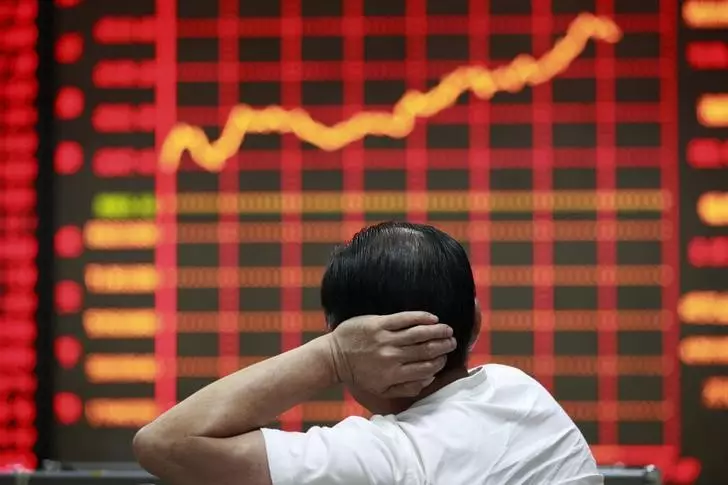Asian stocks experienced a positive trend on Tuesday, bouncing back from recent losses as investors shifted their focus to potential developments in the ongoing trade war between China and the West. With Chinese markets stabilizing after a period of steep declines, optimism began to emerge as Chinese and European ministers engaged in discussions regarding import tariffs on Chinese electric vehicles. While sentiment in the region remained fragile, the overall outlook appeared more optimistic compared to previous sessions.
Taking cues from Wall Street, where heavy losses were observed in chipmaking stocks, regional markets in Asia displayed a mixed response. Despite Wall Street ending on a lower note, Asian markets managed to maintain stability, with U.S. futures trading relatively sideways in the Asian session. This fluctuation in global markets highlighted the interconnectedness of economies and the impact of external factors on regional sentiment.
The upcoming release of the PCE price index data, which serves as the Federal Reserve’s preferred inflation gauge, remained a focal point for investors. Anticipation surrounding the inflation print played a significant role in keeping broader Asian markets subdued, particularly in light of weakening technology shares. The outcome of the data is likely to influence the future outlook for U.S. interest rates, adding further uncertainty to market dynamics.
In an effort to address escalating trade tensions, Chinese ministers engaged in dialogue with German officials to potentially reduce or eliminate tariffs on Chinese electric vehicles. Despite this initiative, concerns persisted as Canada joined the U.S. and the EU in imposing additional tariffs on Chinese goods, intensifying strained relations between China and Western economies. The ongoing trade disputes added a layer of unpredictability to market sentiment, particularly in relation to China’s role in global trade dynamics.
Japan’s Nikkei 225 index witnessed a modest increase of 0.5%, driven by gains in economically sensitive stocks. However, losses in heavyweight tech stocks tempered the overall performance of the index, highlighting the delicate balance between different sectors within the market. Meanwhile, Australia’s ASX 200 displayed a stronger performance, rising by 0.9% on the back of increased commodity prices and positive sentiment in the mining sector. South Korea’s KOSPI also made gains, albeit limited by losses in technology stocks, indicating the varied performance of different markets in the region.
Looking ahead, market participants are keenly awaiting the release of consumer price index inflation data from Tokyo and Australia, offering further insights into the economic landscape of these regions. The minutes of the Bank of Japan’s latest meeting, which hinted at a potential interest rate hike in July, added an element of speculation to market sentiment. Additionally, fluctuations in the yen and improved consumer sentiment in Australia injected a sense of dynamism into the market, highlighting the importance of staying attuned to evolving economic indicators and geopolitical developments in the Asian region.

